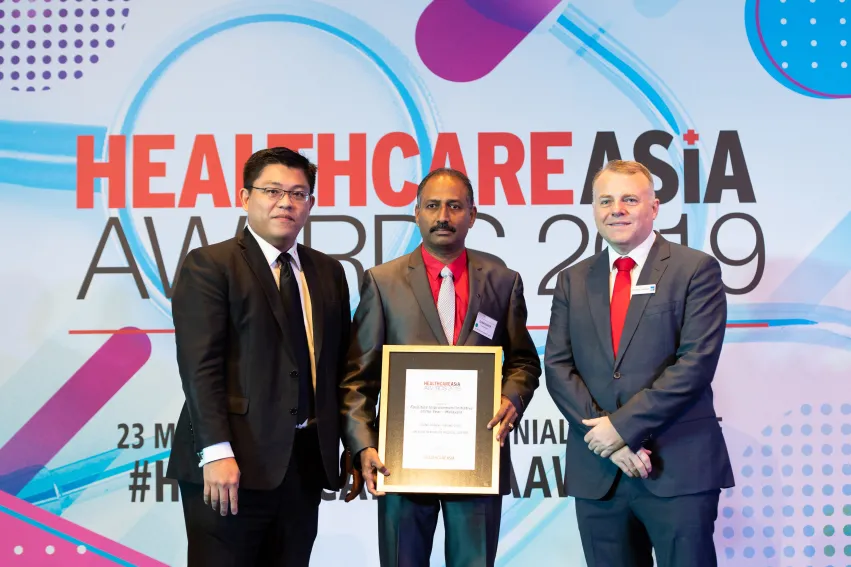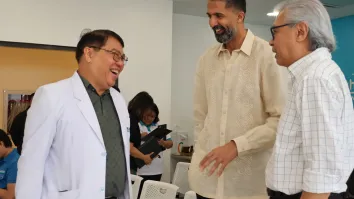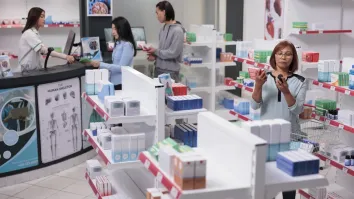
Sri Kota Specialist Medical Centre bags the Facilities Improvement Initiative of the Year
Its efforts to reduce energy consumption and go green paved way to operational efficiency.
Sri Kota Specialist Medical Centre launched initiatives to improve its facilities, aiming to reduce energy consumption and become more environment friendly, whilst reducing operational costs and increasing efficiency and customers’ satisfactory level.
For this, the medical centre was commended at the recently concluded Healthcare Asia Awards 2019 for Facilities Improvement Initiative of the Year.
One of the initiatives involved replacing the hospital’s conventional chiller system with an AL-CO hybrid chiller system. Since the chiller upgrade, the hospital noticed a significant drop in its power consumption and electrical utility bill. A year after the installation, Sri Kota Specialist Medical Centre reported utility bill savings of up to RM28,084.85 and RM36,744.78 for the months of July and August, respectively. From 2017 to 2018, the hospital pocketed RM5,929.29 and RM4,451.60 in electrical savings for the same months, achieving its goal of driving operational efficiency.
In making the decision to replace the old system, Sri Kota Specialist Medical Centre considered the benefits of the hybrid system, including savings on energy consumption, lower water utilization, lower maintenance cost and no requirement for mechanical plant room, lower requirement for extra construction materials via reduction of total system quantum, lesser noise pollution via quieter operations, and efficient energy utilisation through a built-in logic control.
Making facility improvement decisions was not the first for Sri Kota Specialist Medical Centre. Just a year prior to the adoption of a hybrid chiller system, the hospital installed a pneumatic tube system with radio-frequency identification (RFID) technology. With this enhancement, there was no longer the need for extra manpower to carry documents around the hospital. By the press of a button, inter-department transactions became faster, and prompt and error-free delivery of results became possible.
The better management of its facilities allowed Sri Kota Specialist Medical Centre to enjoy real-time data collection and an entire integration into operating and production processes. Lean Healthcare became more than just a concept to the hospital. By making changes within the facility and being open to new concepts, Sri Kota Specialist Medical Centre forged a new path into the heart of healthcare.
The Healthcare Asia Awards 2019 was held on May 23, 2019 at the Conrad Centennial Singapore.
This year's nominations were judged by a panel consisting of Abhay Bangi, Partner, Life Sciences & Healthcare Lead, Ernst & Young; Dr. Loke Wait Chiong Executive Director, Healthcare Sector Leader, Deloitte; Dr. Zubin Daruwalla, Director, SEAC Health Industries Leader, PwC; Chin Chee Choon, Advisory Leader, Nexia TS; and Willy Leow, Partner, Risk Advisory Services, BDO LLP.
Check out the event photos during the awards night here.
If you would like to join the 2020 awards and be awarded as one of the most outstanding healthcare companies in the region, please email Julie Anne Nuñez at [email protected].



















 Advertise
Advertise






